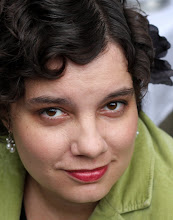I posted a comment to a friend’s Facebook post today. It was the political ad for one of the candidates in Alaska. I am interested to find out how people respond to the comment. The ad makes the point that this candidate is just trying to make sure Alaksans "Get their fair share" from Washington. When has Alaska ever not gotten their fair share, more than their fair share really? I posted a link to this article: http://www.nytimes.com/2010/08/19/business/19stimulus.html
Then I wondered if the person would just hide me. I hide people. I don’t want to de-friend them, because that would hurt their feelings, but I also don’t want to read what they have to say. I don’t want to thank Jesus for the popcorn at the movies. I don't want to read gay-bashing. So why I am I supposedly 'friends' with these people? I guess I am not. I am acquainted with them. Were I friends with them I would call them out about these things. I would tell them how I really felt.
But today it is much easier for us to just avoid conflict or even topics we are not interested in. I don’t have to read about places I don’t like or have interactions with people who don’t fit my democrat-leaning, literati-loving, coffee-snob self. I can just avoid these people. I can avoid trying to explain myself to these people. I can insulate myself.
What does this behavior do to people? Does it make it harder to deal with conflict when it comes along? Does it give us a eschewed view of the world? Does it end up making us worse citizens? If everyone can just hide other people when they don’t like what they say, where does that leave public discourse?
9.28.2010
Subscribe to:
Post Comments (Atom)




3 comments:
Nicole, you made a great point. There is an interesting book (not well written though), which deals with this issue on the political level - The Big Sort.
I try to think that without Facebook, you just wouldn't be so well-acquainted with the political views of your acquaintances.
But on some level, I agree. I worry mostly about the news media being so polarized and "interpretive" (read deliberately misleading).
Montana and I have been thinking about solutions for that last one. Ask us about it if you're interested.
I read the Big Sort following Marika's enthusiastic recommendation. It was really interesting at first... But I put the book down after about five or six chapters, when I noticed that the author basically repeats his thesis over and over and over and over again. Not sure if it got any better, but I'd recommend reading the first couple chapters... They discuss exactly the issue you posted about.
Post a Comment